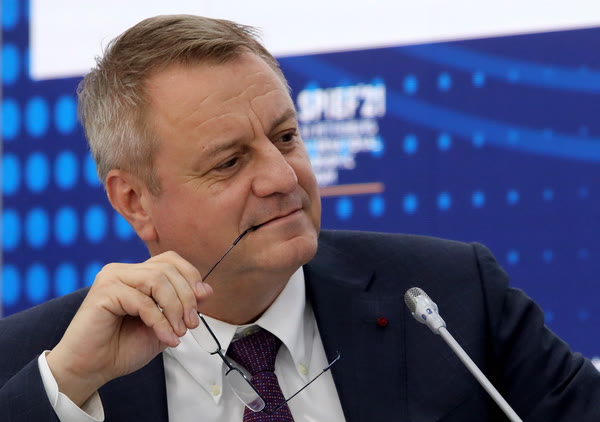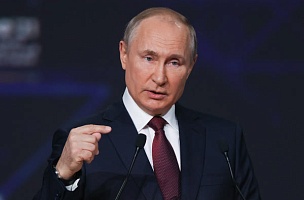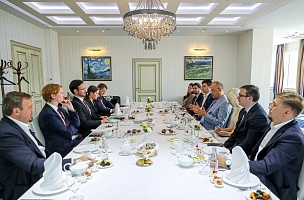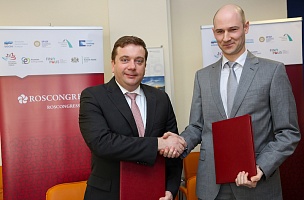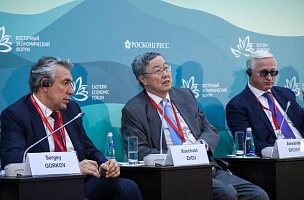KEY CONCLUSIONS
Focus on the ESG agenda should lay the foundation for the improvement of relations between Russia and the European Union, it is necessary to develop a consolidated response to global challenges
“In 2020 Russia faced four challenges. First, the pandemic; second, the collapse of oil prices; third, the devaluation of the rouble; and the fourth, which is an ongoing challenge, the geopolitical context that does not make things easier. At the same time Russia demonstrated good economic indicators. The global challenges are so disruptive that we need to come up with a joint approach and cooperate in fighting the pandemic,” Johan Vanderplaetse, Chairman, Association of European Businesses; President, Russia and CIS, Schneider Electric.
“Our ultimate goal is to combat greenhouse gas emissions. And in this context, technological neutrality, mutual recognition, and implementation of projects aimed to reduce carbon dioxide emissions are crucial. Building these mechanisms is a subject for strong international discussion, and we have high hopes for the climate conference in Glasgow this November,” Maksim Reshetnikov, Minister of Economic Development of the Russian Federation.
Development of 5G networks can become a new touchpoint for Russia and Europe
“No country, no government can cope with all the tasks on their own. For example, 5G requires joint efforts, so the European Union and Russia must work together to deploy this technology. Now we need to work together on 5G technologies in Russia and in Europe,” Arun Bansal, Executive Vice-president, Head of Market Area Europe and Latin America, Ericsson.
“Russia has amazing technological capabilities, and there are great companies. If we compare them with Western companies, if we join forces [connecting to 5G], we will all benefit from this,” Johan Vanderplaetse, Chairman, Association of European Businesses; President, Russia and CIS, Schneider Electric.
PROBLEMS
Need to achieve international agreements
“We are now probably at the most difficult point in the development of our relations since the end of the Cold War. I think both sides value OUR relationship. Why are we at this negative point in our development? Of course, there are territorial and geopolitical issues, issues of human rights violations. I believe that all these problems contributed to the ‘suspension’ of our political dialogue, which is now affected by uncertainty. In this atmosphere it is difficult to go back to the normalization of these relations,” Markus Ederer, Ambassador of the European Union to the Russian Federation.
“Most of the formerly effective formats of our [the countries of the European Union and the Russian Federation] interaction are currently on hold. <…> We, Russia, have not closed a single door, we have not imposed any restrictions. All suspensions were initiated by the European Union,” Vladimir Chizhov, Ambassador Extraordinary and Plenipotentiary, Permanent Representative of the Russian Federation to the EU.
SOLUTIONS
Expanding the list of ‘green’ projects and finding a compromise between government and business
“We categorized nuclear energy as a ‘green’ project, and this was a crucial decision. We believe that, based on the criterion of greenhouse gas emissions, based on the principles of technological neutrality, nuclear power should be seen as clean energy. And secondly, we have developed a number of transitional projects that may not meet some highest standards, but for many industries in our country this is a big step forward,” Maksim Reshetnikov, Minister of Economic Development of the Russian Federation.
“We must use the opportunity to strengthen our relationship in the context of ‘green’ transformation and creation of ‘green’ economy. This will be a new field for cooperation that is of interest for representatives of our business. The more our policy becomes oriented towards the development of a ‘green’ economy, the more seriously we move towards stabilizing our relations,” Markus Ederer, Ambassador of the European Union to the Russian Federation.
Regional experiments that allow to introduce a system of emission quotas in the regions
“We are working on a soft regulatory framework that will allow us to implement climate projects, take into account the carbon footprint of products that will make our entire system more transparent, while at the same time we are launching a system of more stringent regulation based on regional experiments. Many countries have followed this path. We are currently in the final stage of the Sakhalin experiment, which will enable individual regions, at their will and in agreement with the business, to declare the goal of carbon neutrality and introduce a system of emission quotas with the trading system, and so on,” Maksim Reshetnikov, Minister of Economic Development of the Russian Federation.
<...> We need to focus on reducing carbon emissions and strengthening other ... areas. The Sakhalin project is also a great example of enhancing our cooperation, including in the future. These are the efforts that we should focus on, excluding the political context. <...> We must work on issues of compliance with the obligations of WTO member countries. The obligations of all WTO members must correspond,” Markus Ederer, Ambassador of the European Union to the Russian Federation.
For more information, visit the ROSCONGRESS.ORG Information and Analytical System.


